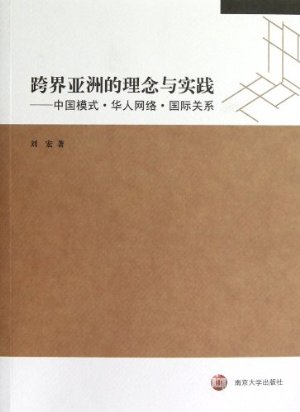Idea and Practice of Transnational Asia-Chinese Model, Chinese Networks and International Relations

Chinese academia is increasingly conducting academic exchanges, communicating and cooperating across disciplinary boundaries. It has established new paradigms while expanding existing research fields and innovating new ones. Overseas Chinese studies exemplifies this new trend. A well-known scholar of overseas Chinese studies and a professor at Nanjing Technological University in Singapore, Liu Hong published his new book, Idea and Practice of Transnational Asia-Chinese Model, Chinese Network and International Relations by Nanjing University Press in January 2013. Idea and Practice traces the contributions of overseas Chinese to China, especially discussing the impact overseas scholars who return to China have already had, becoming pillars of the scientific, technological and industrial fields in China–a phenomenon that mainstream academia has ignored. Liu provides a new angle for the future development of China and contemporary Chinese studies.
Wu Bin, a senior research fellow at the China Policy Institute in the School of Contemporary Chinese Studies at Nottingham University, commented that the main achievement of Liu Hong’s book is to develop the concept “Chinese networks” in the global context. Given China’s long history and cultural traditions, “Chinese Networks” is not a new concept for either Chinese or non-Chinese scholars. In their global mobility, Chinese have crossed geographical (Asia or the globe), social (class or hierarchies) and cultural (identity and identification) boundaries. The book is divided into two thematic sections, one of which examines overseas Chinese through the context of nation-states and the internet, and the other of which considers both the globalized aspects and localized aspects of overseas Chinese.
Liu Hong’s research has probed into the popularity of transnationalism in research on ethnic groups and ethnic diasporas. Though he largely addresses the significant status of overseas Chinese in Asia, by no means does Liu confine his discussion to the continent, Wu Bin explained. In fact, Liu devotes three chapters to providing an excellent overview of Chinese in Britain.
The Chinese version appeared in Chinese Social Sciences Today, No. 482, July 31, 2013
Translated by Zhang Mengying
Revised by Charles Horne
